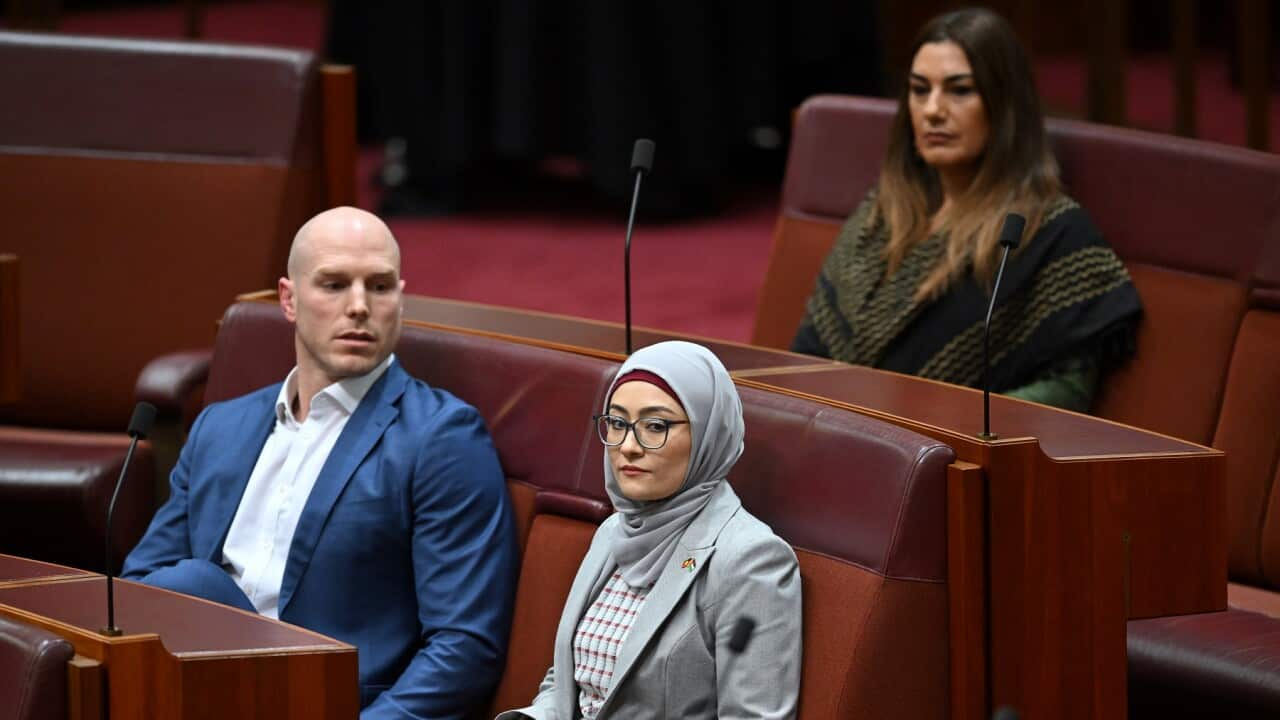TRANSCRIPT
It's been an unusual sitting period in Canberra - with Labor Senator Fatima Payman crossing the floor of Parliament.
“My decision to cross the floor was the most difficult decision I have had to make, and although each each step I took across the Senate floor felt like a mile, I know I do not put the steps by myself.”
The West Australian Senator is suspended indefinitely from Caucus, after she told the ABC she would consider crossing the floor again.
“It depends on what is brought forward in the Senate, but if the same motion on recognising the state of Palestine was to be brought forward tomorrow I would cross the floor.”
To vote in Parliament, you physically move to a side of the chamber. Voting against your party is known as crossing the floor. With hundreds of politicians from a range of backgrounds in the Federal parliament, there very diverse views.
So why is it such a big deal for a politician to cross the floor?
Senior lecturer in politics at the University of Sydney, Dr Stewart Jackson, says it's a rare thing to happen.
“It was an unusual move by a Labor senator, by any Labor MP for that matter. It's not completely unheard of, but it is relatively unheard of at the national level. So I was surprised to hear that it occurred. I was less surprised by the reaction of the Prime Minister and caucus because then a longstanding tradition is you don't do that.”
The rules for the Labor party are strict - all politicians are banned from crossing the floor, as Labor Frontbencher Bill Shorten told the ABC.
“When you become a Labor candidate, you actually sign a contract. And the contract is that you will be bound by the decisions of the caucus. Now, she can't do that at the moment. She really conflicts with her, her other views. And we can get that.”
Being part of a political party comes with benefits - you have the support of the party, an established voter base, and party resources. That comes with the expectation you'll vote with the party.
Famously, now Foreign Minister Penny Wong voted with her party, against Same Sex Marriage, going against her personal views, with an understanding that the best way to make change is with a united front.
Dr Jackson says it's a tradition rooted in history.
“It actually comes from when they first elected people to Parliament in the 1890s. The first group of people elected as Labor MPs promptly didn't follow what the labor movement itself wanted and went off and did their own thing. So they said, okay, from now on you're either in the party and you support what we want, or you're not in the party and you're out.”
For the coalition, it's a bit different.
Crossing the floor happens more frequently, and there's no blanket ban, but there can be consequences.
Dr Jackson says there's a notion you'll support the party.
“There's a notion that you join the LNP, you support the LNP, you'll vote with the LNP, but it's not a hard and fast rule. There have been at times people who will cross the floor. It's relatively rare, but it certainly does happen and you might get one or two a year.”
Dr Rob Manwaring from Flinders University says there's a different tradition for the coalition.
“If you look at the coalition and the early Liberal Party, is that there was a much stronger focus on forms of representative forms of democracy rather than delegatory one. And by that it means that Liberal MPs were much more able to vote their conscience, focus on individual freedoms and consciousness rather than collective ones.”
This all surfaced from a Greens motion.
Greens leader Adam Bandt says members are able to vote however they see fit under party rules.
“We've got very clear provisions for that in our constitution, members of the Greens are able to do that. So that's the approach we take.”
Former Labor strategist and pollster Kos Samaras says it may be time for Labor to reconsider the approach.
“I think on some issues, there is definitely room for a revision of the current rules, especially if they're going to try to attract younger Australians to their political movement. And we do know younger Australians, if they are interested in politics, want a bit of self expression, a bit of self self autonomy.”













